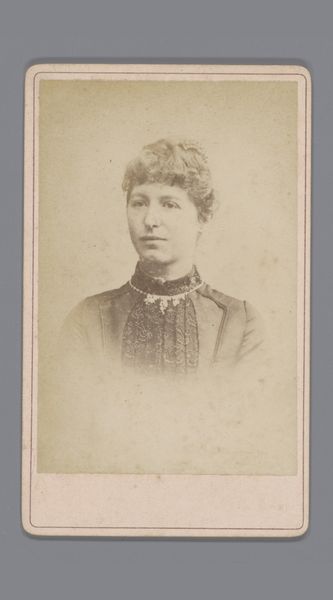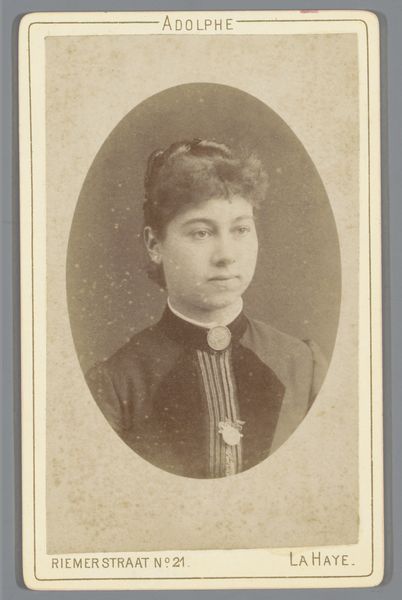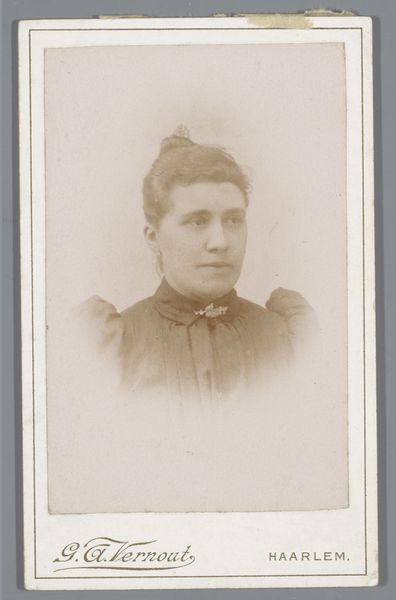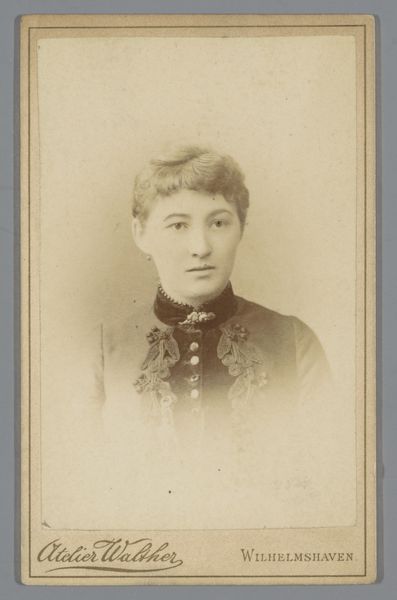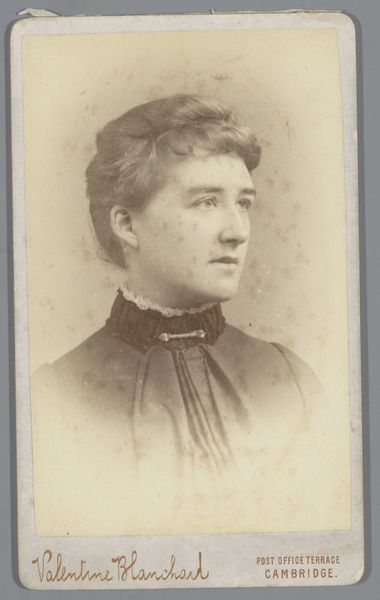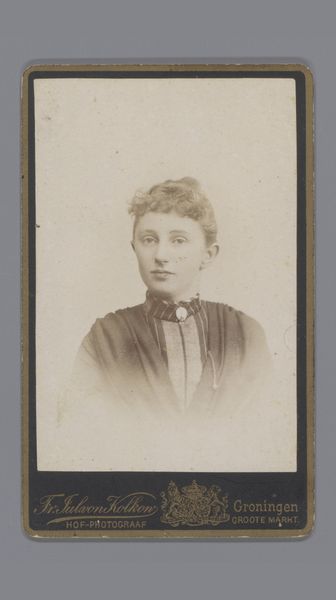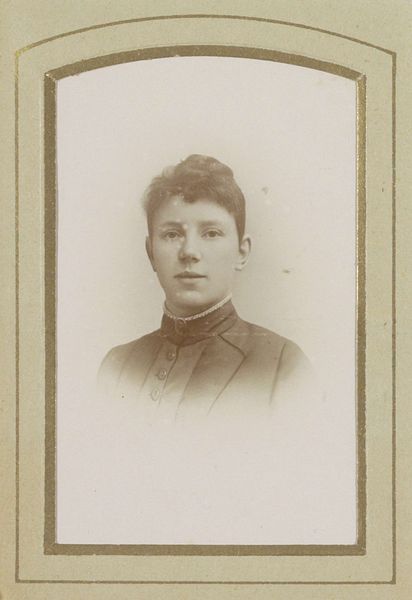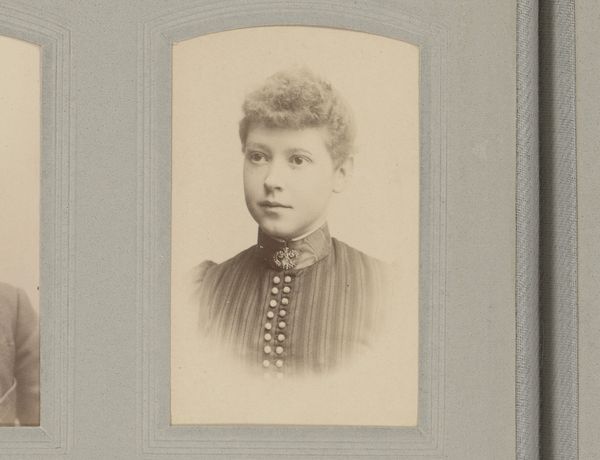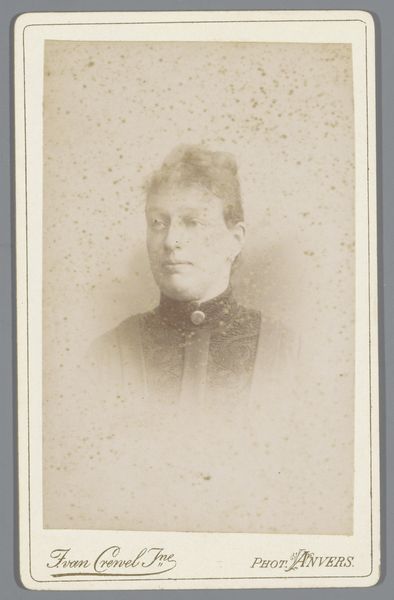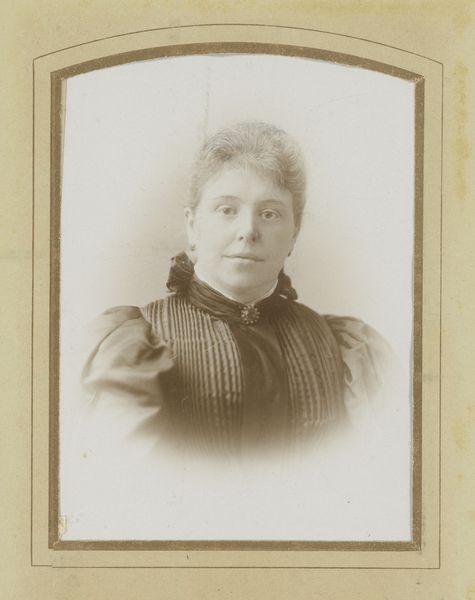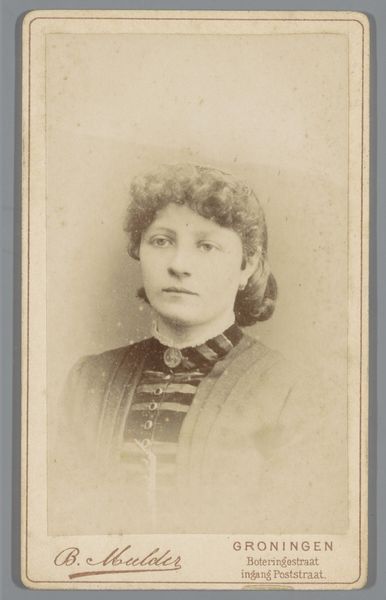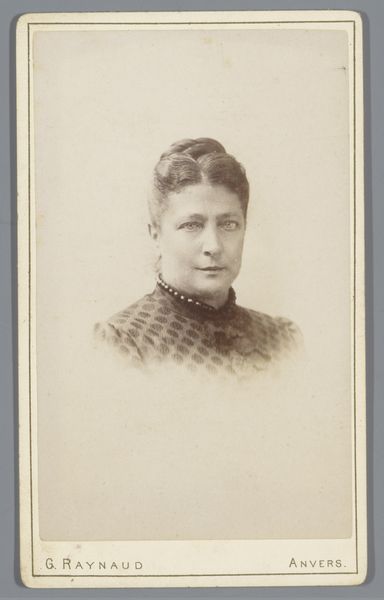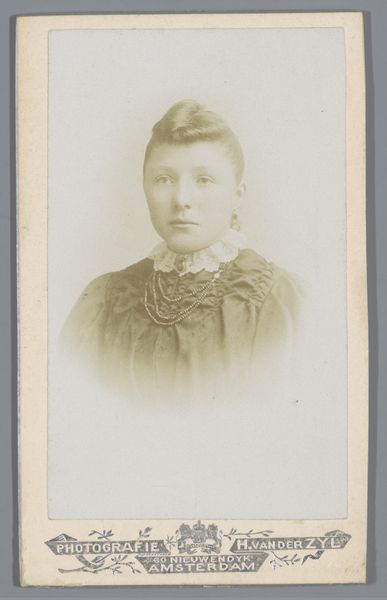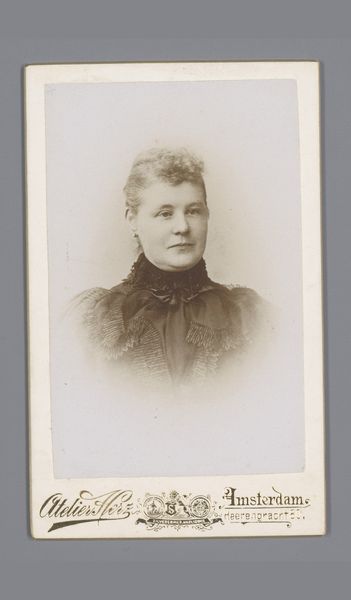
photography
#
portrait
#
photography
#
realism
Dimensions: height 98 mm, width 64 mm
Copyright: Rijks Museum: Open Domain
This photograph of an unknown woman was made by Friedrich Julius von Kolkow, likely in the late 19th century, using a process called 'carte de visite.' These small portraits were very popular, and they democratized image-making by making portraits widely available for the first time. The carte de visite involved a complex chemical process, permanently fixing an image onto a treated paper. This was itself adhered to a thicker card. The tonal range is subtle, yet the textures of the woman’s clothing and hair are clearly visible. The photograph's sepia tone is characteristic of early photographic processes, and gives the image a nostalgic quality. The rise of photography in the 19th century was tied to wider social issues of labor, politics, and consumption. The mass production of these images was part of the burgeoning industry of visual culture and mass media, and it involved the labor of many workers, from photographers and technicians to factory workers producing photographic materials. Considering the materials and processes used in its making helps us to understand the photograph's place in the history of art and visual culture.
Comments
No comments
Be the first to comment and join the conversation on the ultimate creative platform.
